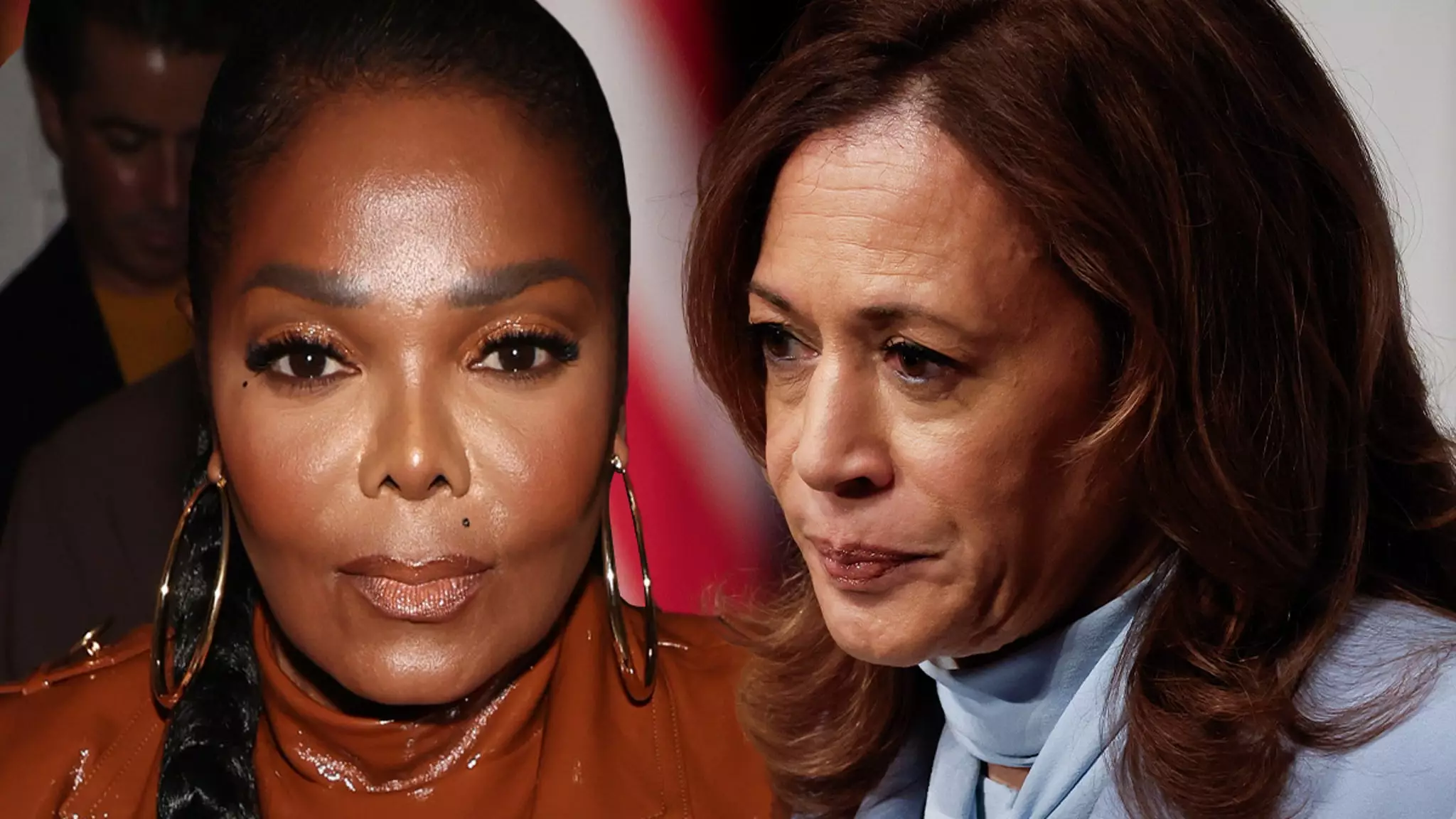Recently, pop icon Janet Jackson has stirred controversy by endorsing remarks that challenge the racial identity of Vice President Kamala Harris. In an interview with The Guardian, Jackson echoed a conspiracy theory originally put forth by Donald Trump during a prior public engagement. This development raises critical questions about the intersection of race, politics, and celebrity influence in contemporary discourse.
During her conversation, Jackson asserted that she had heard claims suggesting that Harris is not Black but rather of Indian descent. This claim mirrors Trump’s remarks made at the National Association of Black Journalists’ Annual Convention, where he insinuated that Harris had “turned Black” to align herself politically. Such declarations are not only divisive but also diminish the complex realities of racial identity. Jackson further fueled speculation by erroneously claiming that Harris’s father is white, a statement that runs counter to established facts about Harris’s Jamaican-American heritage.
It is important to dissect the motivations behind these statements. The propagation of such theories by a prominent figure like Jackson potentially influences public perception and perpetuates misinformation. Jackson’s comments reflect a growing trend where celebrities engage with political narratives without fully grasping the implications of their words. This not only impacts discussions surrounding race but also contributes to the broader political atmosphere.
The ongoing debate over racial identity is particularly salient in American politics, especially as the 2024 election approaches. By questioning Harris’s racial authenticity, Jackson inadvertently amplifies a narrative that seeks to muddle the discussions about race, identity, and representation in politics. Harris, who openly identifies as both Black and Indian, embodies a multifaceted identity that reflects the complexities of contemporary America. Reducing her identity to mere political strategy undermines the legitimate experiences of individuals with multi-ethnic backgrounds.
Furthermore, Jackson’s overlooking of Harris’s identity raises broader questions about the responsibilities that public figures hold regarding the information they disseminate. With platforms that can reach millions, it is critical that celebrities carefully consider their statements, particularly when touching on sensitive topics such as race. In a world where misinformation can spread rapidly, there is an ethical obligation to verify the facts before broadcasting potentially harmful accusations.
The fallout from Jackson’s comments has already begun, with calls for clarification and accountability. In an age where public figures are increasingly expected to be role models, Jackson’s remarks may alienate many fans and stakeholders who are deeply invested in authentic discussions surrounding racial identity and representation.
As the nation gears up for another pivotal election, it is imperative that conversations about race, identity, and politics be rooted in truth and solidarity rather than conspiracy theories and personal agendas. The celebrity influence landscape cannot ignore the potential ramifications of careless dialogue, and it is time for public figures like Jackson to lead by example—fostering informed discussions that honor the rich tapestry of identities in America.


Leave a Reply